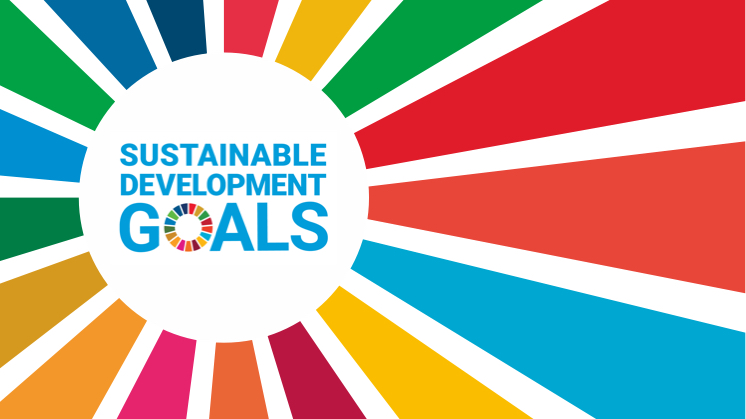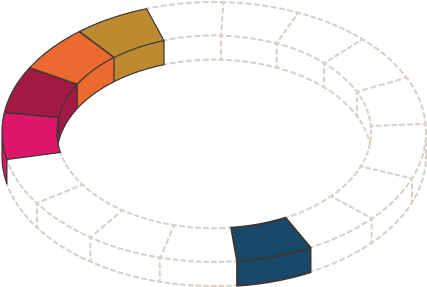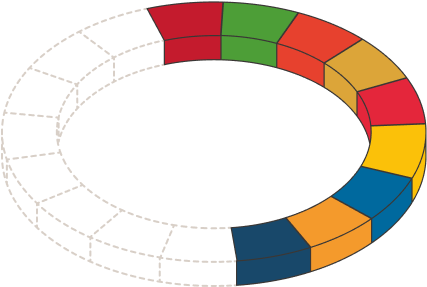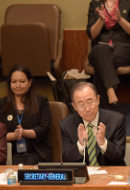What is the 2030 Agenda
The importance of the 2030 Agenda and the Sustainable Development Goals (SDGs)
In 2015, all the member states of the United Nations (UN) approved the 2030 Agenda for Sustainable Development - an action plan to help people and the planet, encompassing the 17 SDGs.

With the arrival of the new millennium, in 2000 the United Nations launched a series of goals focused on reducing extreme poverty, child mortality rates, combating epidemics and fostering a global partnership for development. These were the so-called Millennium Development Goals, consisting of 8 goals and 28 targets to be achieved by 2015. Before the end of this period, in 2012, the UN initiated a process to review the problems and seek a solution to them. Thus an International Development Agenda was born, the 2030 Agenda, and with it the Sustainable Development Goals.
What is the 2030 Agenda and how did it come about?
On 25 September 2015, the 193 member states of the UN approved the 2030 Agenda for Sustainable Development, an ambitious plan that sets out to achieve prosperity that is respectful of the planet and its inhabitants. This Agenda is made up of 17 Sustainable Development Goals (SDGs), further broken down into 169 targets, to be met by 2030 with the intention of "leaving no-one behind". The threat of climate change is now more real than ever and the SDGs are crucial if we want to avoid compromising our children's future.
The 2030 Agenda is a continuation of the UN Millennium Development Goals (2000-2015) which were in their day the first international consensus on facing global problems such as the eradication of extreme poverty and hunger, and to promote improvements in access to education. Although the targets were not fully achieved, they nevertheless provided the basis for significant progress which, in 2015, was extended through the 2030 Agenda and its respective SDGs.
Alongside the SDGs and the 2030 Agenda, the Paris Summit in 2015 set out the guidelines that are being implemented with the aim of reducing CO₂ emissions and curbing climate change.
Summary of the 2030 Agenda (central points)
The 2030 Agenda is based on five dimensions, also known as the 5Ps:
The SDGs and their impact on the economy, society and the environment


Economy
Supported by a prosperous environment and society, the SDGs from an economic point of view are focused on industry, innovation and infrastructure, the reduction of inequality, responsible consumption and production; decent work and growth disassociated from environmental deterioration.

Society
Social development is impossible if the environment is harmed and natural resources become scarce. Thus, the SDGs associated with clean energy, the eradication of poverty and hunger, peace and justice, sustainable cities, education, gender equality and health, serve as a foundation for the goals that are financial in nature.

 SEE INFOGRAPHIC: The SDGs and their impact on the economy, society and the environment [PDF]
SEE INFOGRAPHIC: The SDGs and their impact on the economy, society and the environment [PDF]
The 17 Sustainable Development Goals (SDGs)
- SDG 1 End poverty: eradicate extreme poverty for all people everywhere, currently measured as people living on less than $1.25 a day.
- SDG 2 Zero hunger: end hunger and ensure access by all to safe, nutritious food.
- SDG 3 Health and well-being: ensure a healthy life and promote well-being for all ages.
- SDG 4 Quality education: ensure inclusive and equitable quality education and promote lifelong learning opportunities for all.
- SDG 5 Gender equality: achieve gender equality and empower all women and girls.
- SDG 6 Clean water and sanitation: achieve universal and equitable access to safe and affordable drinking water for all.
- SDG 7 Affordable and clean energy: ensure access to affordable, reliable, sustainable and modern energy for all, and ensure the energy transition.
- SDG 8 Decent work and economic growth: promote sustained, inclusive and sustainable economic growth, full and productive employment and decent work for all.
- SDG 9 Industry, Innovation and Infrastructure: build resilient infrastructure, promote inclusive and sustainable industrialisation and foster innovation.
- SDG 10 Reduce inequality: reduce inequality within and among countries, progressively achieving and sustaining income growth for the bottom 40% of the population at a rate higher than the national average.
- SDG 11 Sustainable Cities and Communities: ensure access for all to adequate, safe and affordable housing and basic services, and improve slums.
- SDG 12 Responsible consumption and production: ensure sustainable consumption and production patterns.
- SDG 13 Climate action: take urgent action to combat climate change and its effects.
- SDG 14 Marine life: conserve and sustainably use the oceans, seas and marine resources.
- SDG 15 Terrestrial ecosystems: sustainably manage forests, combat desertification, and halt and reverse land degradation and biodiversity loss.
- SDG 16 Peace, justice and strong institutions: promote just, peaceful and inclusive societies.
- SDG 17 Partnerships for the Goals: revitalise the Global Partnership for Sustainable Development.
How to implement the 2030 Agenda
The UN shares information on the overview of SDG efforts as well as a ranking of countries Enlace externo, se abre en ventana nueva. according to the achievement of the goals. For their part, Member States publish voluntary reports
Enlace externo, se abre en ventana nueva. according to the achievement of the goals. For their part, Member States publish voluntary reports Enlace externo, se abre en ventana nueva. on the implementation of the 2030 Agenda. Below, we take a look at some of the initiatives launched in some of them:
Enlace externo, se abre en ventana nueva. on the implementation of the 2030 Agenda. Below, we take a look at some of the initiatives launched in some of them:
- Spain. In terms of the fight against poverty, inequality and social exclusion, the State highlights the development of the already approved Minimum Living Income, the reform of pensions, the increase in the Minimum Interprofessional Wage and the approval of the housing law. The report also includes the extension of feminist rights thanks to the Organic Law on the Comprehensive Guarantee of Sexual Freedom and the Organic Law on Sexual and Reproductive Health and the Voluntary Interruption of Pregnancy. On climate change, the report highlights the development of the Climate Change and Energy Transition Law and the approval of the National Integrated Energy and Climate Plan 2021-2030.
- Mexico. Other short-term projects include plans to draft a new General Water Law; promote initiatives to address the eradication of poverty and inequality, especially in the areas of gender, health and education; plan reforms to address vulnerable groups; and design sustainable budgets with a 2030 Agenda approach.
- United Kingdom. Pursuing the goal of "leaving no one behind", it reports, among other initiatives, the development of policies in England to tackle loneliness among young people, the sick and the elderly, as well as programmes to teach English to migrants, according to the latest voluntary report published in 2019. The state also highlights the adoption in Scotland of the Fairer Scotland Duty, which requires the government to consider how to reduce inequalities caused by socio-economic disadvantages when making strategic decisions; and initiatives to eradicate food poverty in Northern Ireland.
- Brazil. The latest report, published in 2017, highlights social advances in the eradication of extreme poverty and hunger, such as the improved management and coverage of the Continuous Benefit pension system and the Bolsa Familia programme to support families living in poverty or extreme poverty. Progress in guaranteeing a healthy life is underlined, with programmes aimed at agricultural and livestock production. In addition, there are notable plans to diversify the country's energy sources, increase the proportion of renewable sources and achieve greater efficiency in the sector, which comprise an essential strategy from both the country's economic and environmental point of view.
- Germany. The report, published in 2021, highlights important progress on several aspects of the SDGs. It highlights the German government's preventive approach to poverty with initiatives such as the Skills Development Opportunity Act to improve workers' re-qualification, the stabilisation of the minimum wage since its approval in 2015 and the improvement of economic education packages for children. It also highlights the approval of the National Bioeconomy Strategy to use biological resources sustainably and the digital transition in agriculture, as well as the maintenance of its climate commitments for 2050.
- France. The government highlights in the report published in 2023 having introduced measures to support the most vulnerable, including labour market reform and a policy of revaluing work. It has also stepped up mobilisation in favour of students' mental health. Progress on the ecological transition is mixed, with good progress on improving water and air quality, the expansion of marine protected areas, the International Maritime Organisation (IMO)-led commitment to decarbonise ships by 2040 and increased business awareness of sustainable production methods. However, challenges remain in terms of biodiversity and soil preservation.

Paris Agreement
Find out what this agreement is about, what are its key points and which countries are part of it.

Climate action
Leading the way towards a decarbonised and resilient economy.

Environmental issues
Discover the environmental challenges we have ahead of us, set out in the UN's 2030 Agenda.

Women in science
The UN's 2030 Agenda calls for urgent measures to promote equality in education.



























